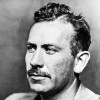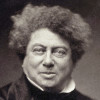“ A man in a sound sleep, or strongly occupyed with one thought, is insensible of time; and according as his perceptions succeed each other with greater or less rapidity, the same duration appears longer or shorter to his imagination. ”
David Hume, A Treatise of Human Nature (1738). copy citation
| Author | David Hume |
|---|---|
| Source | A Treatise of Human Nature |
| Topic | perception imagination |
| Date | 1738 |
| Language | English |
| Reference | |
| Note | |
| Weblink | http://www.gutenberg.org/files/4705/4705-h/4705-h.htm |
Context
“As it is from the disposition of visible and tangible objects we receive the idea of space, so from the succession of ideas and impressions we form the idea of time, nor is it possible for time alone ever to make its appearance, or be taken notice of by the mind. A man in a sound sleep, or strongly occupyed with one thought, is insensible of time; and according as his perceptions succeed each other with greater or less rapidity, the same duration appears longer or shorter to his imagination. It has been remarked by a great philosopher, that our perceptions have certain bounds in this particular, which are fixed by the original nature and constitution of the mind, and beyond which no influence of external objects on the senses is ever able to hasten or retard our thought.”
source



